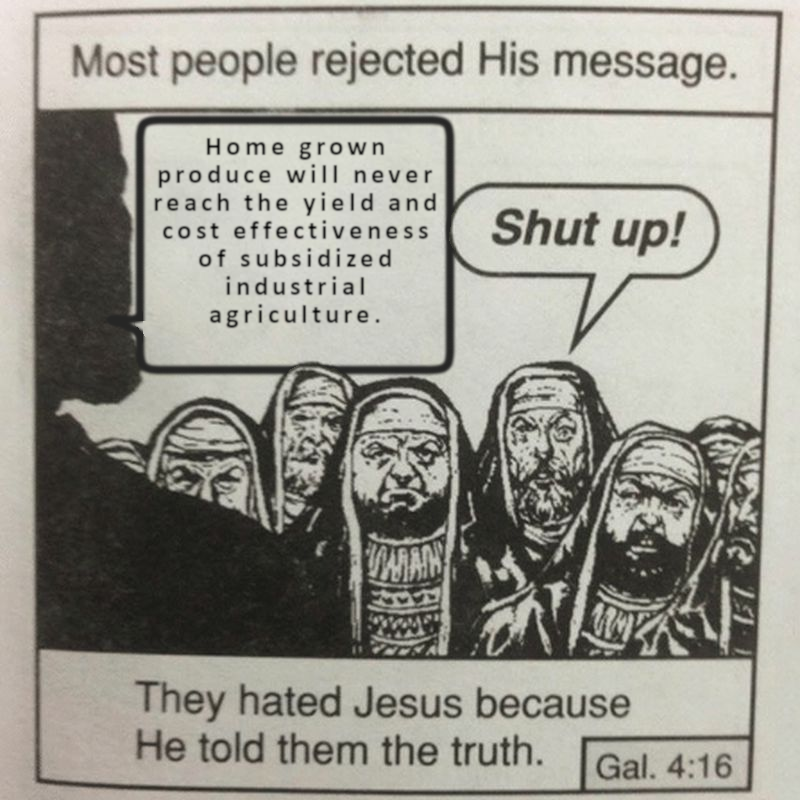this post was submitted on 13 May 2024
814 points (92.0% liked)
Science Memes
11299 readers
2639 users here now
Welcome to c/science_memes @ Mander.xyz!
A place for majestic STEMLORD peacocking, as well as memes about the realities of working in a lab.

Rules
- Don't throw mud. Behave like an intellectual and remember the human.
- Keep it rooted (on topic).
- No spam.
- Infographics welcome, get schooled.
This is a science community. We use the Dawkins definition of meme.
Research Committee
Other Mander Communities
Science and Research
Biology and Life Sciences
- !abiogenesis@mander.xyz
- !animal-behavior@mander.xyz
- !anthropology@mander.xyz
- !arachnology@mander.xyz
- !balconygardening@slrpnk.net
- !biodiversity@mander.xyz
- !biology@mander.xyz
- !biophysics@mander.xyz
- !botany@mander.xyz
- !ecology@mander.xyz
- !entomology@mander.xyz
- !fermentation@mander.xyz
- !herpetology@mander.xyz
- !houseplants@mander.xyz
- !medicine@mander.xyz
- !microscopy@mander.xyz
- !mycology@mander.xyz
- !nudibranchs@mander.xyz
- !nutrition@mander.xyz
- !palaeoecology@mander.xyz
- !palaeontology@mander.xyz
- !photosynthesis@mander.xyz
- !plantid@mander.xyz
- !plants@mander.xyz
- !reptiles and amphibians@mander.xyz
Physical Sciences
- !astronomy@mander.xyz
- !chemistry@mander.xyz
- !earthscience@mander.xyz
- !geography@mander.xyz
- !geospatial@mander.xyz
- !nuclear@mander.xyz
- !physics@mander.xyz
- !quantum-computing@mander.xyz
- !spectroscopy@mander.xyz
Humanities and Social Sciences
Practical and Applied Sciences
- !exercise-and sports-science@mander.xyz
- !gardening@mander.xyz
- !self sufficiency@mander.xyz
- !soilscience@slrpnk.net
- !terrariums@mander.xyz
- !timelapse@mander.xyz
Memes
Miscellaneous
founded 2 years ago
MODERATORS
you are viewing a single comment's thread
view the rest of the comments
view the rest of the comments

You're getting a lot of hate here, but you're not entirely wrong. Cost aside, home gardens are massively more carbon intensive than modern industrial agricultural methods. Community gardens are generally better.
https://phys.org/news/2024-01-food-urban-agriculture-carbon-footprint.html
That said, gardens do still offer a ton of other benefits, both for your mental health and your taste buds. But let's not completely decentralize our agricultural system.
Appreciate the link to the paper. Will be an interesting read.
But at first glance here's a wee problem with the study: It takes the worst practices of urban farms and compares them with the best practices of industrial farms. It is not comparing "home grown produce" from the OP, where some of the principle offenders - not using materials for a long time - may, in fact, be used for a long time. It also doesn't study small-scale non-urban farms. Which to me IS a decentralization but by people who know what they are doing.
One example is composting, where it correctly surmises that people who don't know how to compost correctly.... wait for it now, don't compost correctly and produce higher GHGs.
And you are mischaracterizing the results and omitting a key finding: "However, some UA crops (for example, tomatoes) and sites (for example, 25% of individually managed gardens) outperform conventional agriculture. "